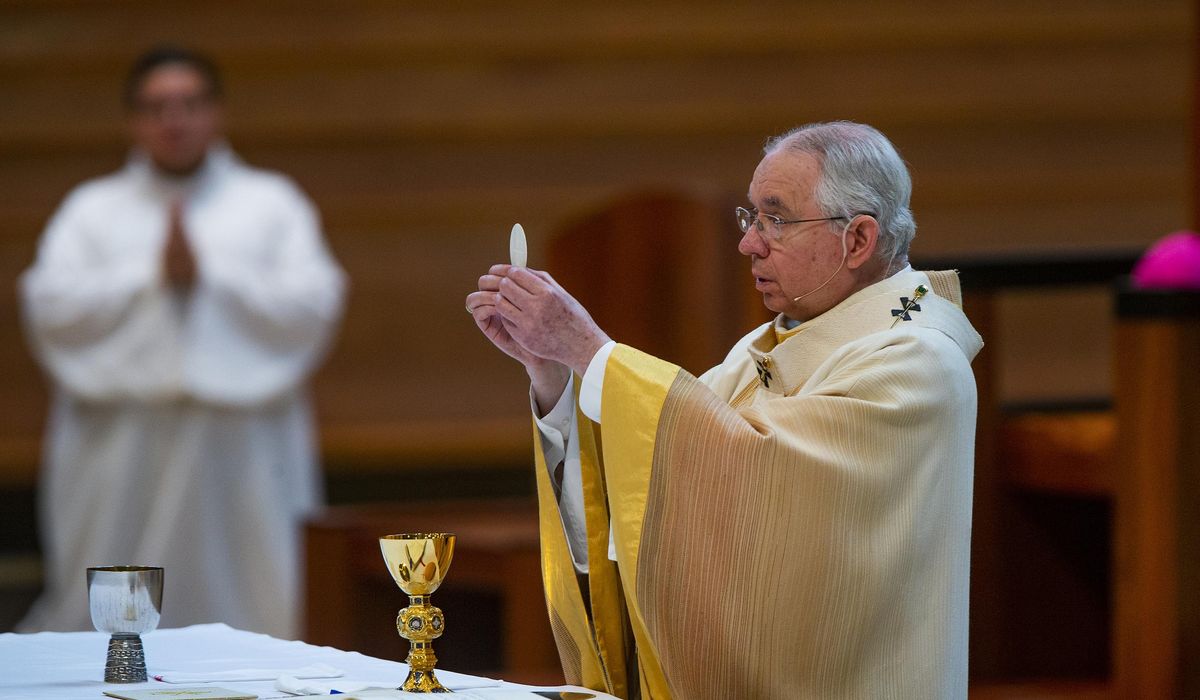
The president of the U.S. Conference of Catholic Bishops late Monday appeared to waver on what a teaching document on the Holy Communion — voted on last week by the group’s members with a draft due in November — will say about whether Catholic politicians such as President Biden, who support abortion rights, can receive the sacrament.
Archbishop José H. Gomez of Los Angeles, in a statement, said “As bishops, our desire is to deepen our people’s awareness of this great mystery of faith, and to awaken their amazement at this divine gift, in which we have communion with the living God. That is our pastoral purpose in writing this document.”
The four-paragraph statement made no mention of who should present themselves during Mass for Communion. Instead, Archbishop Gomez said merely, “I pray that this will be a time for all of us in the Church to reflect on our own faith and readiness to receive our Lord in the Holy Eucharist.”
The issue of allowing Catholic politicians known for their abortion support to receive communion has divided the American constituency of the Roman Catholic Church for decades. In 2004, Archbishop Raymond Burke, at the time head of the diocese of St. Louis, Missouri, warned Democratic presidential candidate Sen. John F. Kerry of Massachusetts not to present himself for the sacrament while in that area.
By contrast, Cardinal Wilton Gregory, who heads the Washington, D.C., archdiocese, has said Mr. Biden is welcome to receive communion there. The incoming bishop of Mr. Biden’s home diocese in Wilmington, Delaware, Monsignor William Koenig, hasn’t stated his position on the matter yet, other than to say he would welcome the chance to speak with the president about the subject.
The USCCB vote to create a document on the Eucharist was met with criticism in many quarters, with those opposed to the measure stating it was a ploy to slap at Mr. Biden’s politics. Media reports from Rome indicated the Vatican was wary about approving such a document if it contained a prohibition tied to political action







